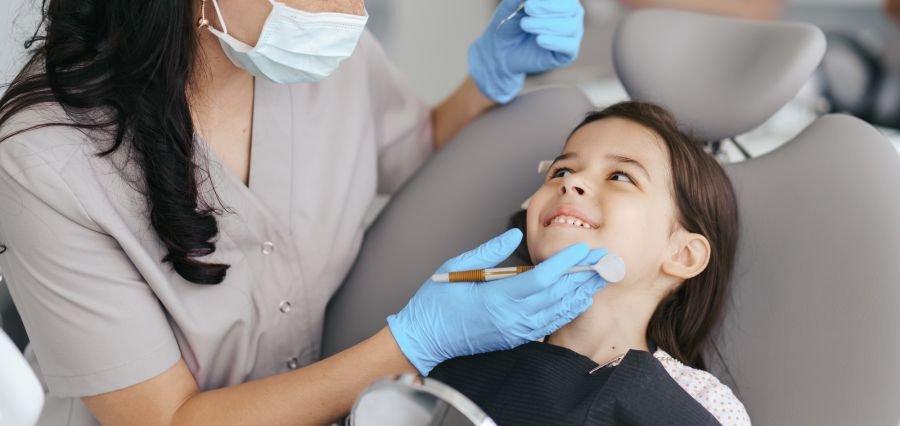Welcome to our ongoing series of resources on detox from InsightsCare.
Before diving right into the logistics of getting into detox, it’s essential to understand what detox is and why it’s important.
As you likely already know, detox is the process of allowing the body to rid itself of substances such as drugs or alcohol. It’s often accompanied by withdrawal symptoms, which can range from mild to severe, depending on the substance and the individual.
While detox is not a treatment for addiction, it is a critical foundation in the broader process of addiction treatment. By allowing your body to clear out toxins, you can prepare yourself for the next steps in your recovery journey, such as therapy and counseling.
Identifying Your Needs
The first step towards accessing detox services is identifying your needs. Here are some questions to consider:
- What substances are you detoxing from?
- Do you have any co-occurring medical or mental health conditions?
- What type of detox environment do you feel most comfortable in (inpatient treatment or outpatient)?
Understanding your needs will help you select the right facility and approach for your detox process.
Researching Substance Abuse Treatment Options
When looking for an accessible detox center in Phoenix, consider the various treatment options available.
Community Resources
Local community organizations often provide resources for individuals seeking substance abuse treatment and detox services without insurance. Organizations such as:
- Substance Abuse and Mental Health Services Administration (SAMHSA): This federal agency can connect you to local treatment programs and provide information on low-cost options.
- Arizona Substance Abuse Coalition: They can direct you to facilities that offer detox services for individuals without insurance.
State-Funded Programs
Arizona has several state-funded programs designed to assist those in need of detox services. These programs typically provide services on a sliding fee scale based on income or may even offer services at no cost. Research state-funded detox options by contacting:
- Arizona Health Care Cost Containment System (AHCCCS): This state agency offers a variety of services for individuals without insurance.
The Affordable Care Act has expanded access to state-funded detox services, ensuring coverage for mental and behavioral health disorders.
Nonprofit Organizations
Many nonprofit organizations in Phoenix are dedicated to helping individuals with substance use disorders. These organizations often provide detox services, support groups, and referrals to treatment programs. Some well-known nonprofits include:
- Phoenix Rescue Mission: This organization provides detox services and support for individuals facing homelessness and substance use issues.
- Tumbleweed Center for Youth Development: They focus on assisting homeless youth and may provide detox resources for young adults.
American Addiction Centers also offer low-cost or no-cost treatment options for individuals without insurance.
Reaching Out to Treatment Centers
Once you have identified potential detox centers, it’s time to reach out. Be upfront about your health insurance status when contacting detox facilities, as this can significantly impact your treatment options and financial planning.
Here are some tips on how to approach them:
Be Honest About Your Situation
When contacting detox facilities, be upfront about seeking rehab without insurance. Many centers have experience working with individuals in similar situations and may have financial assistance options available.
Inquire About Health Insurance and Payment Options
Ask about payment plans, sliding scales, or any financial assistance programs the facility may offer to help you afford treatment. Some centers may accept cash or have partnerships with local charities to help cover costs.
Ask About Accreditation
Choosing a leading accredited Arizona detox center is crucial for ensuring that you receive safe and effective care. Accreditation indicates that the facility meets specific standards of care and is regularly evaluated by outside organizations.
Preparing for Detox
Once you have secured a spot in a detox program, preparing for the process of drug or alcohol rehab is essential. Here are some tips to help you get ready:
Gather Necessary Information
Prepare to provide information about your medical history, current medications, and any co-occurring health conditions. This information will help the detox team create a personalized treatment plan for you.
Consider Support Systems
Detox can be challenging, both physically and emotionally. Consider who you might want to support you through this process. Having a trusted friend or family member to lean on can make a significant difference.
Understand the Detox Process
Detox processes can vary from one facility to another, but they typically include:
- Assessment: A comprehensive evaluation by healthcare professionals to determine the best course of action.
- Medical Monitoring: Depending on the substance, you may be monitored by medical professionals to manage withdrawal symptoms safely.
- Therapy and Support: Many detox programs include counseling and group support to help you cope with emotional challenges.
What to Expect During Detox
Understanding what to expect during drug rehab, especially during detox, can help ease your anxiety. Here’s a breakdown of the detox process:
Withdrawal Symptoms
Withdrawal symptoms can range from mild discomfort to severe health complications, depending on the substance and the severity of drug abuse. Common symptoms may include:
- Nausea and vomiting
- Sweating and shaking
- Anxiety and irritability
- Sleep disturbances
Your detox team will be there to help you manage these symptoms through medical interventions and supportive therapies.
Length of Stay
The length of stay in an alcohol rehab program can vary. On average, individuals may stay for 3 to 10 days, depending on the substance and the severity of their addiction. Your care team will monitor your progress and adjust your treatment plan accordingly.
Aftercare Planning for Substance Abuse
Detox is just the first step in your recovery journey. Many facilities will help you create an aftercare plan that may include therapy, support groups, or referrals to long-term treatment programs. This step is critical for ensuring lasting recovery.
Finding Long-Term Support
After detox, it’s crucial to seek long-term support to maintain your sobriety. For individuals seeking addiction treatment, having the appropriate documentation is essential, especially if utilizing COBRA insurance to cover healthcare needs. Here are some options to consider:
Therapy and Counseling
Engaging in individual or group therapy as part of alcohol addiction treatment can help address the underlying issues that contribute to addiction. Many community organizations and treatment centers offer affordable therapy options.
Support Groups
Joining a support group, such as Alcoholics Anonymous (AA) or Narcotics Anonymous (NA), can provide a sense of community and accountability as you navigate your recovery journey.
Sober Living Homes
Consider transitioning to a sober living home after detox. These homes provide a supportive environment for individuals in recovery, helping to ease the transition back to everyday life.
Getting Detox Without Private Insurance is Possible
We hope our resource from InsightsCare has shown how accessing detox services without insurance may seem challenging, but it is entirely possible. By exploring community resources, state-funded programs, and nonprofit organizations, you can find an accessible treatment center in Phoenix that meets your needs.
Remember to reach out to facilities openly, inquire about financial options, and prepare yourself for the detox process.
Detox is just the beginning of your recovery journey. With the right support and resources, you can take the necessary steps toward a healthier, substance-free life. Don’t hesitate to seek help—recovery is possible, and you are not alone.
Read More: Click Here










